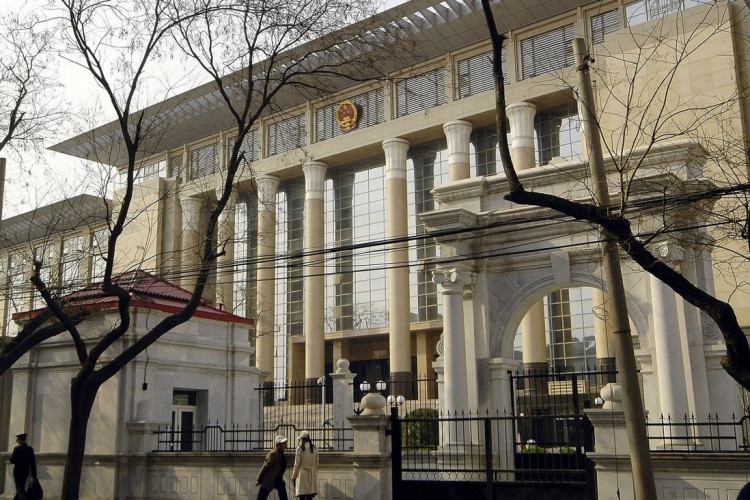The Supreme People's Court of China said Wednesday violence can't shake the judiciary's resolve for justice.
The statement was a response to the alleged murder of Zhou Chunmei, a 45-year-old senior judge of the Higher People's Court in Central China's Hunan Province on Tuesday. Zhou was a mother of two.
The statement posted on Weibo praised Zhou's integrity. "We are in grief at losing such an excellent comrade who has held the bottom line of justice," the statement said. "Zhou, at the cost of her life, has made an example of legal workers' loyalty, selflessness and fearlessness."
Zhou was allegedly killed by an acquaintance in an underground garage. The suspected killer had asked her to make sure she won an appeal against a labor court ruling in which she lost her job. Zhou refused.
At present the suspect has been identified as Xiang only. She has been arrested, according to the Tianxin branch of the Changsha police bureau in Hunan province.
An initial investigation found Xiang and Zhou used to live in the same village. When Zhou refused Xiang's request for judicial favors, Xiang killed her, according to a police statement that didn't elaborate on how the judge was killed or the nature of Xiang's legal action.
The latest information says the 44-year-old suspect disguised herself as a cleaner working in the judge's apartment building. She worked for five days until familiar with the building and Zhou's movements.
Xiang was earlier fined 500 yuan ($77.30) and jailed for 10 days for a March 2019 attack on a former employer. She was sacked following the attack.
Zhou was deputy president of the first court as well as a judge of the Higher People's Court in Central China's Hunan Province since 2016. During her seventeen-year career, she was commended for "distinguishing right from wrong" and "adopting legal principles," according to local publication China Trial.
Zhou's killing has generated public anger and calls for the highest punishment for her alleged killer. Local news stories have concentrated on physical attacks against members of the judiciary and legal profession. Recent such attacks have been prompted by disgruntled defendants, respondents and plaintiffs in divorce or labor disputes.
In November Judge Hao Jian, 56, head of the People's Court of Shuangcheng District in Harbin city, was stabbed to death by a defendant who refused to accept a ruling in his divorce. The judge was killed in a mailroom in the court building.
In January 2017, retired Judge Fu Mingsheng in South China's Guangxi Zhuang autonomous region was stabbed to death in his home. The offender was a respondent in a divorce presided over by Fu in 1994.
In February 2016 Judge Ma Caiyun, 38, was killed in a suburban residential area outside the capital by two attackers with modified ball-bearing guns. Ma had ruled on one of the killers' divorce settlements. The principal attacker had bludgeoned his ex-wife's husband to death earlier that evening. Both attackers killed themselves.
In September 2015, a disgruntled party in a Hubei labor dispute stabbed four judges.
A new rule effective Jan. 1 requires couples in China seeking a divorce to take a monthlong "cooling-off" period. If one partner changes their mind in that time divorce will be denied.





